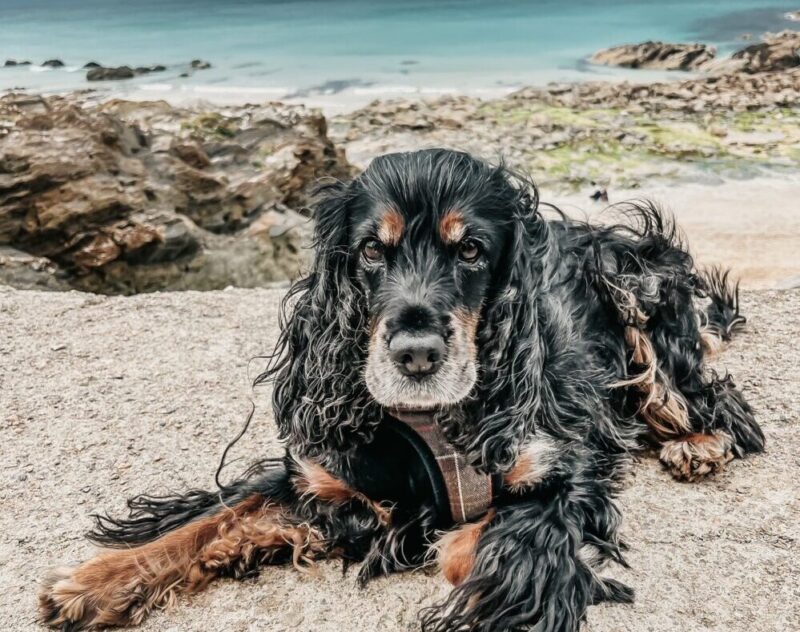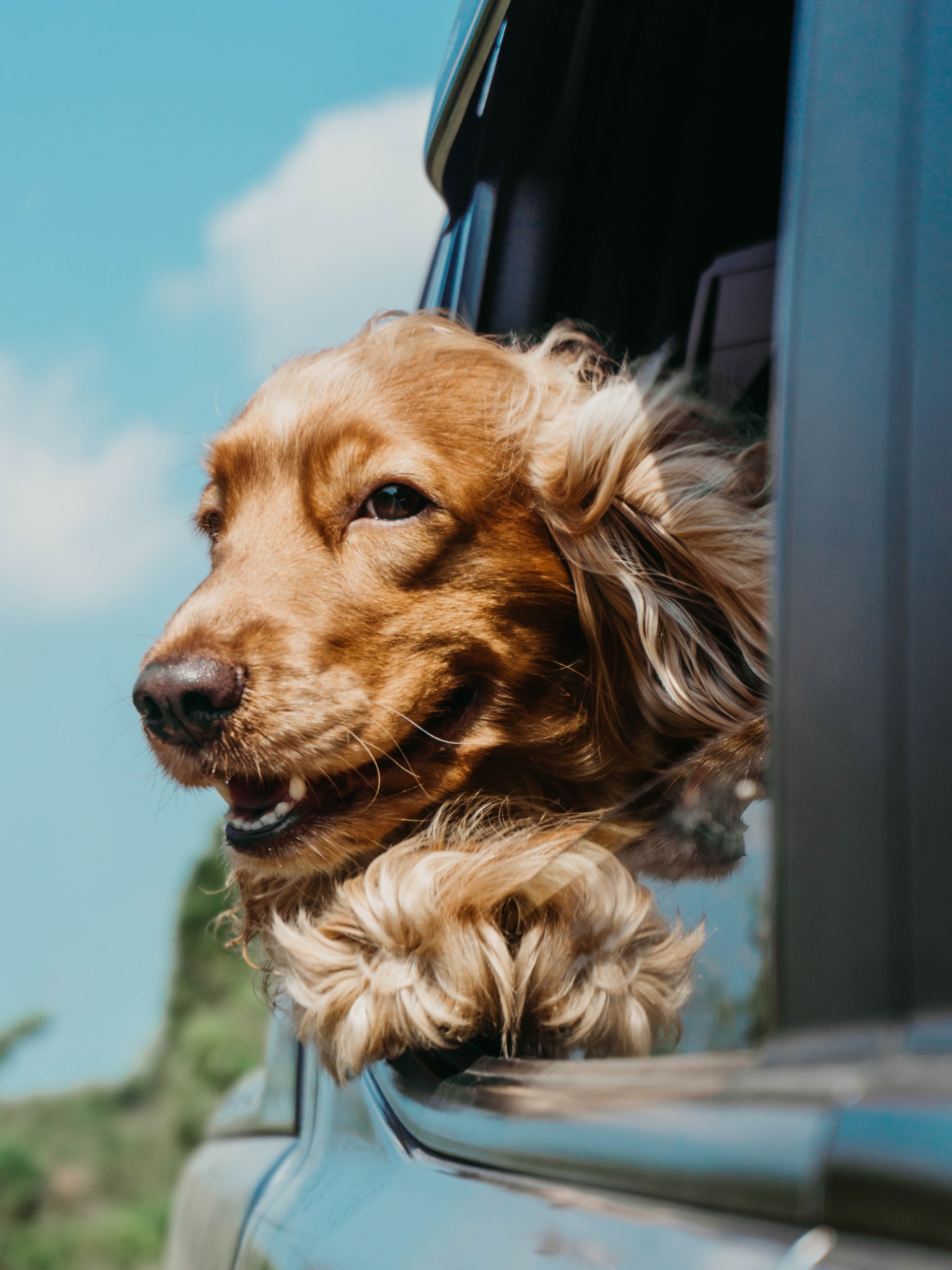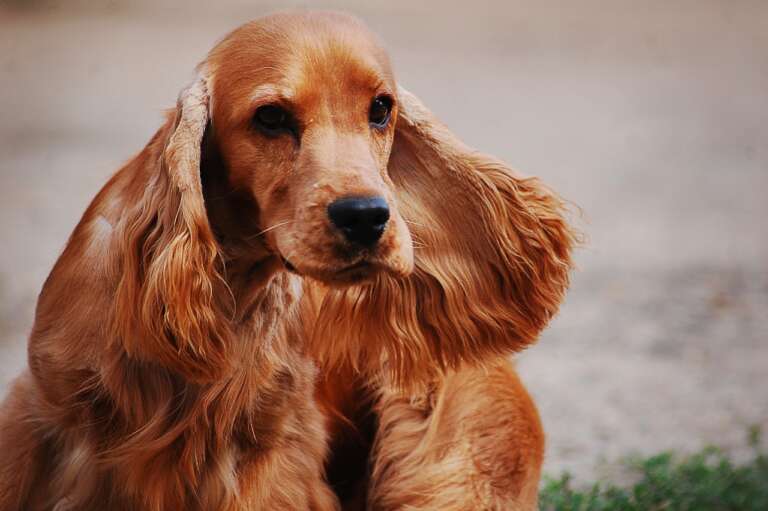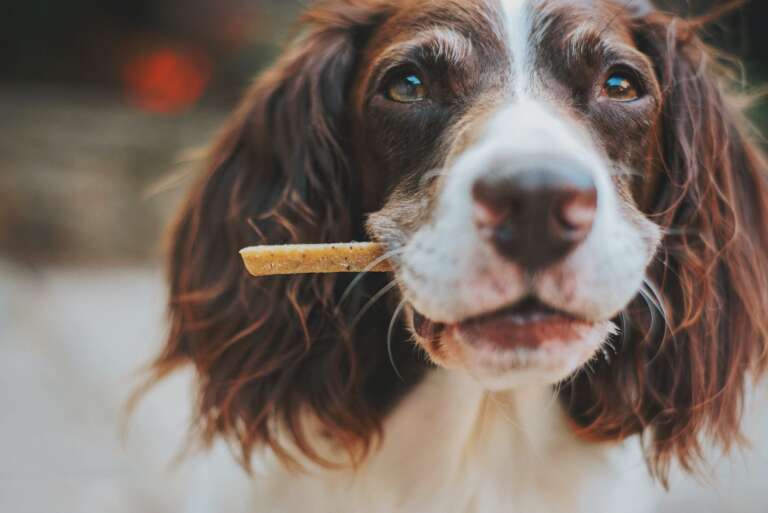Thinking about adding a new furry companion? Are you looking for a dog that is loving, energetic, smart, gentle, and merry?
Look no further because the Cocker Spaniel is your ultimate pet!
You might be wondering what this incredible sporting dog has to offer?
Well, this post will guide you about everything you need to know about Cocker Spaniels.
Cocker Spaniels
Cocker Spaniels are medium-sized dogs with a compact build. These affectionate and friendly dogs make a phenomenal family pet.
There are actually two distinct varieties of Cocker Spaniel:
- American Cocker Spaniel:
American Cocker Spaniels are slightly longer than tall. They rank 30th in popularity out of the 193 breeds recognized by the AKC.
- English Cocker Spaniel
English Cocker Spaniels are taller dogs that have more height than length. This gives them a square shape. They rank 52nd in popularity out of the 193 breeds recognized by the AKC.
They share a common history, a merry temperament, and common health issues. Both Cocker breeds are every inch a sporting dog. However, they are two distinct breeds, all their own.
In 1936, the AKC recognized the English type as a separate variety of Cocker Spaniel. Both are simply called Cocker Spaniels in their native countries.
Characteristics & Traits of the Cocker Spaniel
Dog Group/Type: Sporting
Life Expectancy: 10-14 years
Other Names: Cocker
Colours: solid colour (black or light cream to red to brown), or parti-colour (two or more colours, one of which is white)
American Cocker Spaniels
- Height: 14.5-15.5 inches (male), 13.5-14.5 inches (female)
- Weight: 25-30 pounds (male), 20-25 pounds (female)
English Cocker Spaniels
- Height: 16-17 inches (male), 15-16 inches (female)
- Weight: 28-34 pounds (male), 26-32 pounds (female)
Care/Grooming requirements
Coat:
The thick, sometimes wavy coat is short on the head and back and long on the ears, chest, belly, and legs. The coat comes in enough colours and patterns to please any taste.
Grooming:
Cocker Spaniels are moderate shedders and require regular, thorough grooming. Keeping their coat beautiful is expensive and a lot of work.
- Cocker Spaniels need to be brushed daily to prevent tangles and mats. Sessions missed are not easily made up and may result in tangles or mats. Be careful when combing ears as the skin at the edges is thin and can be pierced by vigorous combing.
- Cocker Spaniels only need to be bathed when necessary. Always use high-quality dog shampoo and conditioner. Thorough rinsing is essential, as soap or shampoo residue can cause skin irritation.
- Cocker Spaniels have long floppy ears that can easily become moist and infected. Learn the procedure for cleaning and drying the ear canals. Be sure to check and clean them once a week to prevent infection.
- Brush your Cocker Spaniels’ teeth at least two to three times a week to remove bacteria and prevent gum infections.
- Your Cocker Spaniels’ eyes should be clear with no discharge, swelling, or redness.
History of the Cocker Spaniel
Country of Origin: Spain
These English and American Cocker Spaniels share the same early roots. That might explain why these merry, energetic, and compact sporting dogs are often confused for one another.
Cocker Spaniels are descended from the Spaniel family, a large group that dates to antiquity. While their origins are unknown, “spaynels” are mentioned in 14th-century writings. By the 1800s, Spaniel hunting dogs were divided into land and water spaniels. The term “cocker” came from the dog’s use in hunting woodcocks.
Temperament of the Cocker Spaniel
Cocker Spaniels are gentle, sweet, and friendly dogs. They are responsive and cuddly and love to participate in family activities. They thrive when around their human companions.
- Cocker Spaniels are companion dogs with a fun-loving nature. These dogs have an outgoing nature and thrive on their owners’ attention.
- Cocker Spaniels are highly playful dogs. They enjoy time with their owners whether it’s a play session, a long walk, or just cuddling up on the couch.
- Cocker Spaniels are very intelligent dogs with good memory. They can fairly understand human gestures and commands.
- Cocker Spaniels are innately loyal to their family. No matter what happens in your life, these wonderful dogs will remain by your side.
- Cocker Spaniels are very sensitive and do not like irregular daily routines and a chaotic household. Punishments and yelling affect them emotionally. They may develop separation anxiety in a household where they’re left alone for long hours.
The temperament of Cocker Spaniels also depends upon how they’re raised, and how much they have been socialized.
Cocker Spaniel Living & Exercise Requirements
The Cocker Spaniels can live a good life in apartments as long as they get the regular exercise they need. These happy-go-lucky charmers are well suited for novice owners.
Training:
Cocker Spaniels are intelligent and fairly easy to train dogs. They learn best through positive reinforcement methods. Keep training sessions short, sweet, and varied. In this way, your Cocker won’t get bored.
Like all dogs, Cocker Spaniels need early socialization and exposure to many different people, sights, sounds, and experiences during puppyhood. Start training as early as possible, ideally when the pup is between 8-12 weeks of age.
Exercise:
A fully grown Cocker Spaniel needs almost two hours of exercise daily. The pounds can pack on pretty quickly if your Spaniel is inactive. Remember to slowly build your pet’s stamina. Start exercising Cocker Spaniels gradually, especially if your dog isn’t used to it.
You can meet Cocker Spaniel’s exercise requirements through activities and games like:
- Daily walks
- Flying disc and flyball
- Fetch game
- Self-play with interactive and puzzle toys
- Visit dog parks and play with other dogs
- Running around in an agility course
- Hide and seek
Diet:
The recommended daily amount for Cocker Spaniels is 1.5 to 2.5 cups of high-quality food a day, divided into two meals. Keeping Cocker Spaniels at an ideal body weight contributes to your dogs’ well-being. It’s also one of the easiest ways to help them hit their life expectancy. Satisfying their greedy eyes is probably shortening their life.
Health Issues
Cocker Spaniels are generally healthy but are prone to certain health issues.
- Eye problems: Eye problems usually strike senior Cocker Spaniels. Some of the most common vision issues in Cockers are glaucoma, progressive retinal atrophy, and cataracts.
- Autoimmune hemolytic anemia (AIHA): In this condition, Cocker Spaniel’s immune system attacks its own blood cells. Symptoms include lethargy, pale gums, swollen abdomen, and occasionally jaundice. Affected Cockers generally do well with treatment.
- Hypothyroidism: Hypothyroidism is caused by a disorder of the thyroid gland. The common signs of Hypothyroidism in Cocker Spaniels include excessive tiredness, depression, weight gain, excessive shedding, and hyperpigmented skin.
- Primary seborrhea: It is a skin problem caused by the overproduction of sebaceous cells. The skin of affected Cockers becomes greasy and scaly with a foul odour.
- Allergies: Cocker Spaniels can suffer from a lot of food and skin allergies. Your precious pet may be sensitive to flea bites or environmental allergens like mould, dust, or pollen.
- Idiopathic epilepsy: It is an inherited disease and can cause mild or severe seizures. It refers to abnormal, uncontrolled bursts of electrical activity in your Cocker Spaniel’s brain.
- Canine hip dysplasia: Cocker Spaniels can develop hip dysplasia, an inherited cause of hindlimb lameness. Some Cockers show pain and lameness on one or both rear legs while others may not show any symptoms.
- Luxating Patella: It is a common cause of lameness or an abnormal gait in Cockers. This condition occurs when your Cocker Spaniel’s patella or kneecap shifts out of alignment. Luxating Patella happens when the muscles and the tendons that hold the kneecap of a Cocker Spaniel in place are too weak.
Celebrity Cocker Spaniels
Well, it’s not surprising that many celebrities have lasting bonds with their Cocker Spaniels. Also, these amazing dogs have been seen on big screens.
- It may not be specifically referred to in the film but Lady, in Disney’s hit film ‘Lady and the Tramp’, is a Cocker Spaniel. The breed’s silky coat and elegant ears made it an obvious choice to play this most classy of canines.
- Richard Nixon had a black and white black and a white cocker spaniel named Checkers. The dog played a role in a Presidential campaign. Checkers died in 1964.
- John F. Kennedy had a Cocker Spaniel, Shannon, at the White House. This was a gift from the Barry Family in Ireland, in 1963.
- Oprah Winfrey owned two Cocker Spaniels, Solomon, and Sadie.
- British Royals Will and Kate have a Cocker Spaniel named Lupo.
- Other celebrity Cocker Spaniel owners include Charlize Theron, Naomi Watts, and George Clooney.
Special Talents and Fun Facts About Cocker Spaniel
- Cocker Spaniels are intelligent dogs and are considered the 18th most intelligent species of dog.
- Cocker Spaniels are big enough to be sporty, but compact enough to be portable. They are suitable for apartment life, as long as they get regular exercise.
- Cocker Spaniels are the first cancer-detecting dog. In 2004, a Cocker Spaniel, named Tangle, was able to correctly identify cancer 80 percent of the time after training.
- The ‘Cocker’ part of the Cocker Spaniel’s name refers to the reason they were originally bred in the UK – to hunt woodcock.
- A Cocker Spaniel was a passenger on the Mayflower – the ship that carried the Pilgrims from England to the New World in 1620.
- The Cocker Spaniel is a model on the Coppertone Bottle.
- Cocker Spaniels are naturally mushballs, so don’t expect them to protect your house.
- The Cocker Spaniels are the smallest dog classified in the AKC Sporting Group.
Your Cocker Spaniel
Cocker Spaniels are an amazing combo of intelligence, friendliness, and playfulness. They make gentle, loving, and trustworthy family dogs and offer superb companionship throughout their life.
If you’re looking for a high-energy, friendly and intelligent dog, then the Cocker Spaniel might just be the perfect breed for you.





Leave a Comment